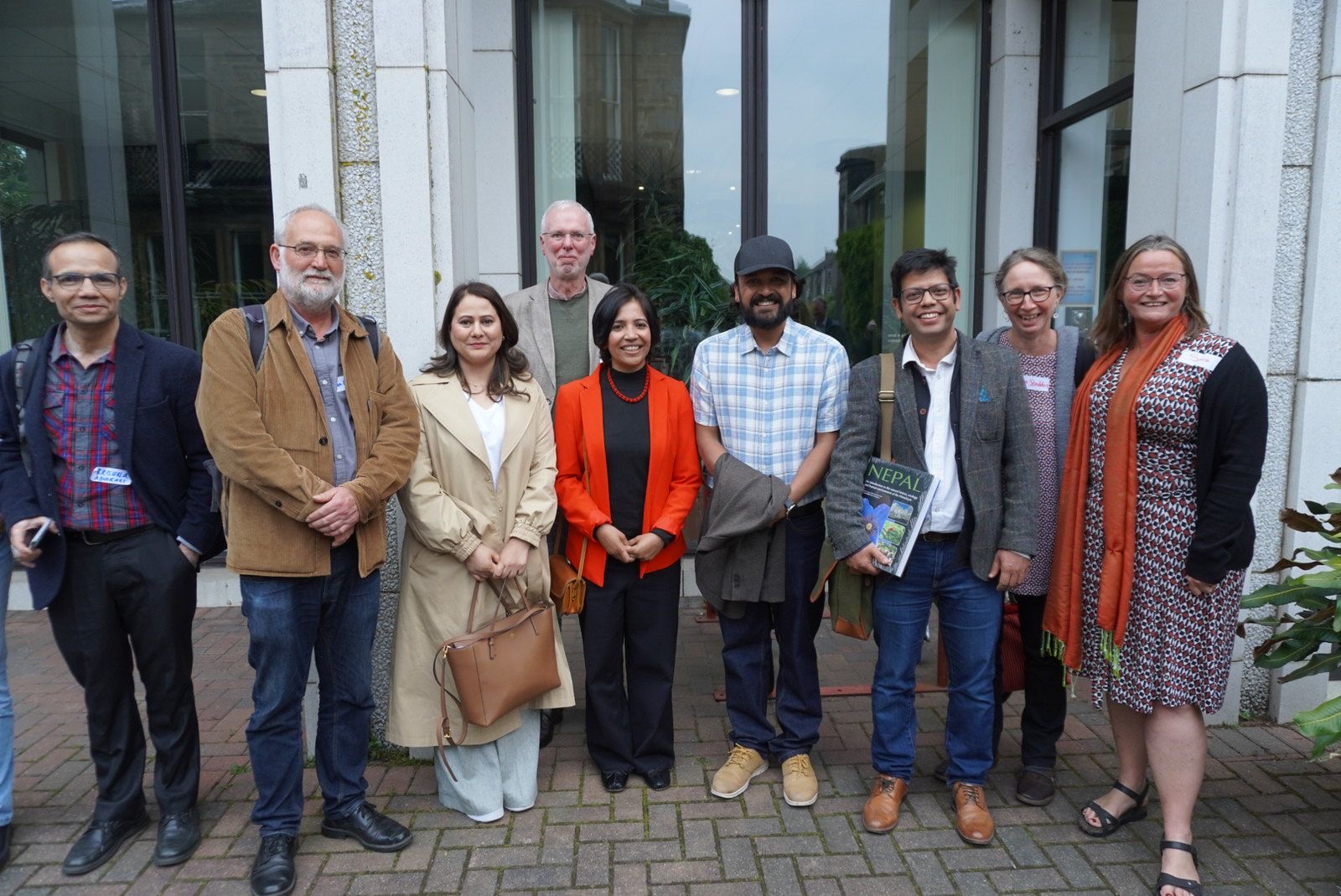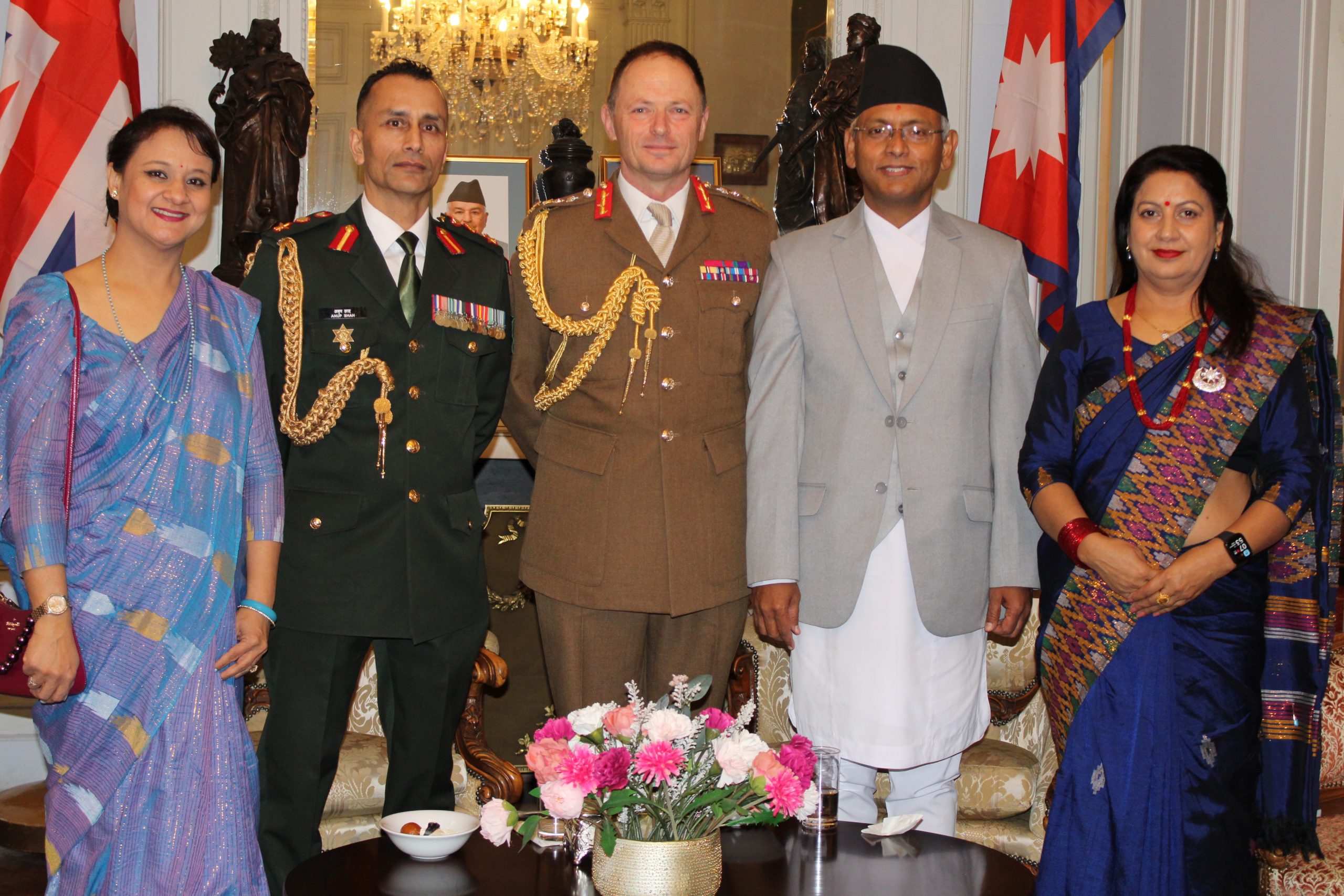Nepal Study Days organised in Edinburgh

London – The 21st BNAC Nepal Study Days took place on 13-14 May 2024, hosted by the University of Edinburgh and the Royal Botanic Garden Edinburgh. A total of 35 academic papers on Nepal were presented over the course of two days in 12 topical parallel sessions, 2 panel discussions and 1 book discussion. The presentations covered various topics, including environment, politics, migration, gender, disaster, Dalit, health and healing.
With many excellent papers, particularly by young scholars, the two days also saw some interesting spoilers, such as a preview of the forthcoming extensive Routledge Handbook of the Himalayas, which Ben Campell co-edits with Thanka Subba and Mary Cameron.
Ben Campbell noted a turnaround in the reforestation of the central Himalayas and drew from gender perspectives, community-based conservation initiatives, and ethnographically informed studies of climate change projects to contemplate prospects for human-environmental interactions in which slow violence may be at work eroding the connections of language diversity and environmental knowledge.
Already in print and thus deserving a larger panel discussion was Krishna Adhikari and David Gellner’s latest edited book: Nepal’s Dalits in Transition which covers a wide range of specialist articles on contemporary Dalit studies in Nepal.
Herne Katha visits Nepal Study Days
This year, the BNAC, in collaboration with the research project ‘Heritage as Placemaking’, invited Bidhya Chapagain and Kamal Kumar, the founders of Herne Katha, to present a preview of their latest film ‘The Lost Years’ in a cinema-length 75 min director’s cut version. An audience of engaged scholars and Nepali community members from Scottland enjoyed the event. Engaging question at the Q&A session highlighted the importance of Herne Katha’s documentary films in connecting the diaspora with the country of their childhood or that of their parents.
PhD Dissertation Prize
Since 2018, the BNAC has awarded each year a dissertation prize for the best-submitted chapter. This year, amongst the many submissions, there were four outstanding chapters, which made it very hard for the selection committee, including Prof Michael Hutt (SOAS), Dr Kumud Rana (Lancaster), Dr Bidha Sumkhada (Huddersfield) and Dr Heidi Riley (Dublin) to settle on a decision.The first prize went jointly to Alice Millington (Cambridge University) and Paula Tine (Victoria University of Wellington). The panel also named Kathrin Fischer (Oxford University) and Sudha Ghimire (Tribhuvan University) as the joint first runners-up.
Paola Tiné’s chapter, entitled ‘Feeling Social Change in the Gut: Gyāstrik and the Problematisation of Domestic Roles Among Newar Women in Contemporary Nepal’, examines how middle-class women in Bhaktapur experienced and made sense of gyāstrik (an umbrella term for multiple gut disorders) as an embodiment of social change.
Alice Millington’s chapter, entitled ‘The fury of the khangba’, argues that the dismissal of Indigenous epistemologies has constrained scholarly understandings of hazards within disaster studies, sometimes leading to failures in the recording of such hazards. Millington provides a rich contextualisation of Indigenous understandings of glacial lake outbursts in Walung, Taplejung, that interweave accounts of religious, political and socio-economic catastrophes not usually considered in analyses of geological catastrophes.
Kathrin Fischer’s chapter, entitled ‘Between fate and choice – a multi-scalar analysis of migration decisions in Nepal’, combines agentic and structural aspects of decision-making around labour migration that are often separated in the wider literature on empowerment and migration. The paper shows how migrants simultaneously embrace and negotiate migration opportunities.
Sudha Ghimire’s chapter, entitled ‘Multilayered transformation through participating activities: Building agency and awareness for menstruation hygiene management’, provides an innovative analysis of how teenagers can develop a critical awareness of how views on menstruation in Nepal are entangled with sociocultural values. The analysis is grounded in transformative learning theory and provides vital insights into dialogic and transformative spaces for exploring adolescent students’ menstruation-related issues.
We are looking forward to hearing more from these distinguished young scholars and wish them all the best for their esteemed careers
New virtual BNAC PhD student reading group
This year’s Nepal Study Day saw the launch of a new PhD reading group in which current PhD students meet monthly online to discuss their own work and selected scholarly work on Nepal. The group is still open to new PhD students working on Nepal and would like to encourage current students to get in touch with Bina Khapung (University of Northumbria) at bina.limbu@northumbria.ac.uk



















Facebook Comments